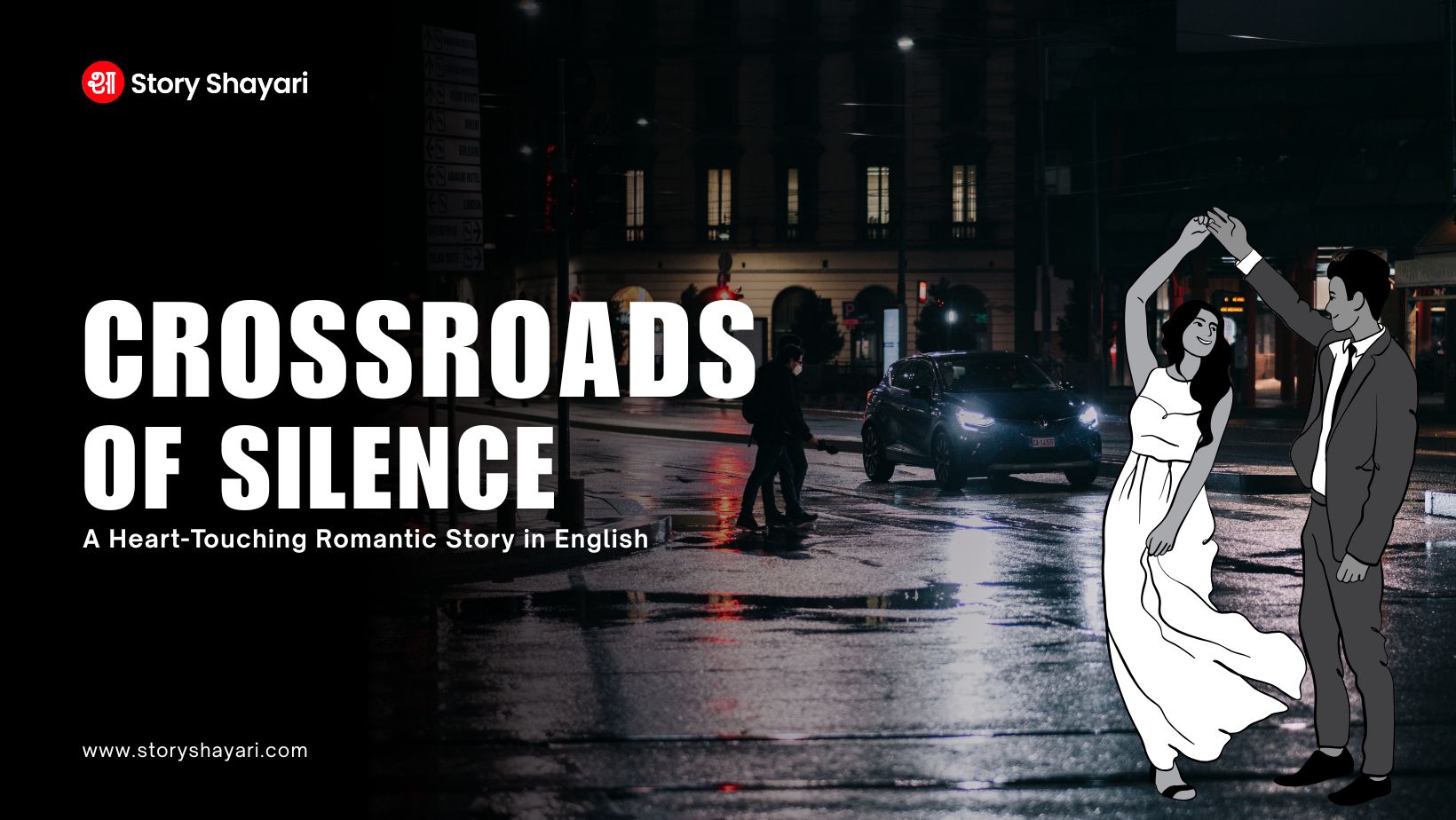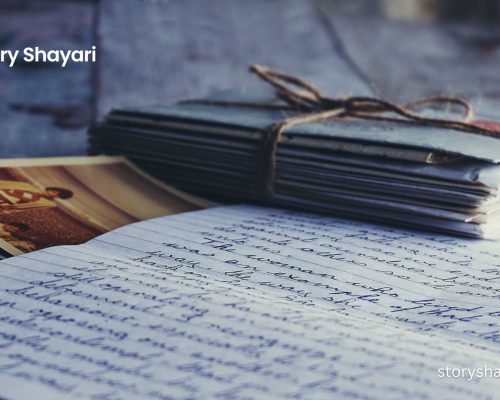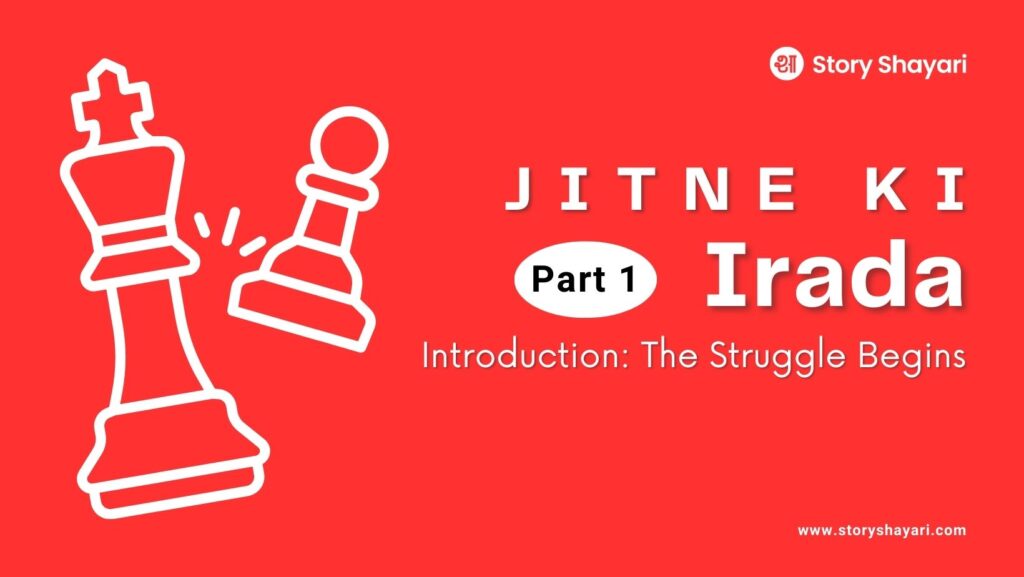The train station was unusually quiet for a Saturday evening. The faint echo of announcements blended with the rhythmic clatter of heels and rolling luggage. People passed each other — hurried, distracted — but amidst the noise and movement, two people stood still in silence. Not because they had nothing to say, but because they didn’t know how much their lives were about to change.
Aarav had always believed that silence spoke louder than words. A struggling novelist from Pune, he often wandered into public places — airports, metro stops, railway stations — in search of inspiration. Faces intrigued him. Every expression told a story he wanted to write. Yet tonight, he wasn’t here for words. He had lost them. A rejection letter that morning from a major publisher had been the final straw. He felt like a ghost carrying dreams nobody could see.
On the opposite bench sat Ira — a music therapist by profession, yet ironically struggling with her own emotional dissonance. She had just missed her train, though she hadn’t truly been in a hurry. Her suitcase was small, her eyes even smaller from crying. She was returning from her father’s funeral. He had been her only anchor after her mother passed away years ago. With his loss, something inside her had broken — something words couldn’t fix.
Aarav noticed her first. Not because she was beautiful — although she was, in a quiet, unassuming way — but because she wasn’t doing anything. No phone, no book, no earbuds. Just sitting, staring blankly ahead like time didn’t exist. That kind of stillness was rare. And familiar.
He wanted to write about her.
But instead, he just sat.
Moments passed. Then minutes. Then nearly an hour.
The silence between them became… comfortable.
Until a metallic clang from a food stall startled Ira, and she dropped the pendant in her hand. It rolled towards Aarav. He picked it up gently and looked at it — a small silver locket, plain except for a scratch on the back.
“Here,” he said softly, holding it out.
“Thanks,” she replied, their eyes meeting for the first time.
It wasn’t a moment of thunder or cinematic realization. It was just two people in a moment of shared solitude.
“I used to have one like this,” Aarav said, nodding at the pendant.
“Used to?” she asked.
“Left it on a bus five years ago. I think I left parts of myself on that bus too.”
She smiled faintly. “I just lost someone.”
He nodded. “Me too. Not today, but over time.”
That odd answer made her tilt her head slightly. “Who?”
“Myself.”
She blinked, unsure whether to feel sad or curious.
“Sorry,” he said. “That came out too poetically. I’m a writer. Words just… slip.”
Her brows lifted slightly. “I’m Ira.”
“Aarav.”
They didn’t shake hands. They didn’t exchange numbers. They simply sat. And talked. Slowly at first. Then like two people who had been waiting to be heard.
Aarav told her about his failed novels, his one successful short story years ago, and how he believed stories could save lives — but wasn’t sure anymore if they could save his.
Ira spoke about her father’s passion for music, how she followed it into music therapy, and how it now felt like sound was only echo, not expression.
At some point, the night grew darker. The station emptied.
She stood up. “I have to go.”
He nodded, standing too. “Which platform?”
“Three. The last train.”
They walked in silence. As they reached the edge, the train lights glowed in the distance.
“Maybe we meet again,” she said.
“Maybe,” he replied. “Or maybe we write each other instead.”
She turned. “What do you mean?”
He pulled out a pen and his worn notebook. “Here. I’ll give you an address. Write me a letter. Or don’t. Either way, this night mattered.”
She hesitated, then tore a page from her diary. “Same.”
They exchanged pages like old souls in a digital age.
The train arrived. She got on. He stood on the platform, watching until the train was a blur. Then, he walked home — lighter somehow, though he didn’t know why.
Days passed. No letter.
Weeks passed. He checked the mailbox like a ritual. Still nothing.
He started writing again. A novel, this time — about two strangers meeting at a train station, changing each other’s lives without realizing it.
By the third month, the manuscript was almost complete. It was different — softer, more real. Less about plot and more about people.
And then one morning, there it was.
A blue envelope.
Handwritten.
From Ira.
*“Dear Aarav,
I wasn’t sure I would write. But silence has been deafening, and somehow, I want to be heard by someone who doesn’t expect me to be ‘fine.’
That night… it felt like I had reached a crossroads in my life. I didn’t tell you everything. My father and I… we didn’t part on good terms. And now I’ll never get closure. But somehow, talking to you made me feel like I still have time to fix something in this world. Maybe even myself.
You asked if stories could save lives. I think they can. Because I walked away that night with a story — our story — and it’s the only one that didn’t hurt to remember.
Write back, if you want.
— Ira”*
He wrote back immediately.
Thus began their exchange — letter by letter, week after week. No phone calls. No emails. Just ink on paper, baring truths they hadn’t shared with anyone else.
She told him about her childhood violin recitals. He told her about his fear of public speaking.
She confessed she never really believed in love.
He admitted he still hadn’t figured out what love meant.
And somewhere in that slow, thoughtful back-and-forth, they discovered something rare: emotional intimacy without expectation.
Then, one rainy Sunday — eight months later — she wrote:
“I’ll be in Pune next weekend. Want to meet? Platform 3, 7 PM. Just like before.”
He dressed in his best, though he’d never admit it.
The station was crowded this time. Loud. Messy. Alive.
But in the middle of all that, he saw her.
Same locket. Same eyes.
He walked to her.
“I was afraid you wouldn’t show,” he said.
She smiled. “I was afraid you wouldn’t wait.”
They didn’t hug.
Not at first.
They just looked at each other.
Long enough to say everything words never could.
And then — finally — they embraced.
A long, quiet hug. The kind that seals something inside two people forever.
They began a new rhythm after that. A relationship stitched from words and wounds, honesty and hope.
Aarav published his novel: “Crossroads of Silence.” It sold modestly, but changed lives. One reader wrote, “Thank you for reminding me that love doesn’t need volume — just truth.”
Ira returned to her music practice, but this time, incorporated letter writing as therapy. Her patients wrote unsent letters to those they’d lost. Some cried. Some laughed. All healed.
They never moved in together.
They didn’t rush to marry.
They lived apart, wrote often, met every fortnight — and built a love that was quiet, deep, and whole.
And in time, they realized something simple.
Silence isn’t the absence of sound.
It’s the presence of peace.
The End
































